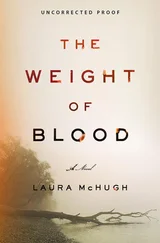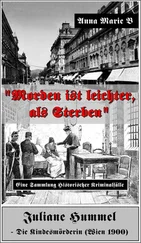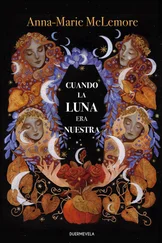Anna-Marie McLemore - The Weight of Feathers
Здесь есть возможность читать онлайн «Anna-Marie McLemore - The Weight of Feathers» весь текст электронной книги совершенно бесплатно (целиком полную версию без сокращений). В некоторых случаях можно слушать аудио, скачать через торрент в формате fb2 и присутствует краткое содержание. Год выпуска: 0101, Издательство: St. Martin’s Press, Жанр: Старинная литература, на английском языке. Описание произведения, (предисловие) а так же отзывы посетителей доступны на портале библиотеки ЛибКат.
- Название:The Weight of Feathers
- Автор:
- Издательство:St. Martin’s Press
- Жанр:
- Год:0101
- ISBN:нет данных
- Рейтинг книги:4 / 5. Голосов: 1
-
Избранное:Добавить в избранное
- Отзывы:
-
Ваша оценка:
- 80
- 1
- 2
- 3
- 4
- 5
The Weight of Feathers: краткое содержание, описание и аннотация
Предлагаем к чтению аннотацию, описание, краткое содержание или предисловие (зависит от того, что написал сам автор книги «The Weight of Feathers»). Если вы не нашли необходимую информацию о книге — напишите в комментариях, мы постараемся отыскать её.
The Weight of Feathers — читать онлайн бесплатно полную книгу (весь текст) целиком
Ниже представлен текст книги, разбитый по страницам. Система сохранения места последней прочитанной страницы, позволяет с удобством читать онлайн бесплатно книгу «The Weight of Feathers», без необходимости каждый раз заново искать на чём Вы остановились. Поставьте закладку, и сможете в любой момент перейти на страницу, на которой закончили чтение.
Интервал:
Закладка:
“It’s from getting my shirt off,” Cluck said. He didn’t have to lift his head to know his grandfather’s stare was on him. He felt it like a draft through a window. “The reaction with the cotton.”
Pépère gripped his forearm tighter. “I have never in your life given you reason to lie to me.”
Cluck felt the words on his shoulders, sure as hands. His grandfather had taught him everything about feathers. Remiges for flight, retrices for balance. And it was thanks to Pépère that Cluck had learned to work with the fingers he had. Nine years ago, his left hand had been so broken, he couldn’t do anything with it. He learned to use his right, buttoned his shirts with it, forced out messy writing. It felt backward as putting a shoe on the wrong foot, but he did it. His fingers healed into a half-fist and grew restless, charged like the static on a metal knob. They wanted to work. But under Dax’s eye, and his mother’s, he couldn’t let them.
When Pépère found him in the Airstream one night, his right fingers fighting with a needle and thread, he set a hand on his shoulder and said, “Use your left, boy.” Cluck had hesitated, sure it was a trick, but his grandfather took the needle from his right hand and slipped it between his left thumb and forefinger, the only two digits on his left hand that weren’t stuck curled under. “ Notre secret, ” Pépère had said, shutting the trailer door. Our secret .
Cluck had no right to lie to the man who kept his secrets.
“There was this girl,” Cluck said. “She was out there.”
Pépère let go of his forearms. “A girl.”
“She had on a cotton dress. My hands made it out better than she did.”
Pépère ’s eyes looked dark as palm ash. “You took off her dress?”
“As much as I could, yeah.”
His grandfather let out a breath and put a hand to his temple. “The people here, they think things about us.”
Cluck didn’t need reminding. It was enough that they were performers, that they traveled from town to town. But a few of them, like Cluck and Pépère, stood out worse, a different kind of dark than the people around here were used to.
“If you touch a girl in this town,” Pépère said, “it doesn’t matter why, people will talk.”
“You think I should have left her there?” Cluck asked.
“I think you should have told me. Then at least I’d know what you’d gotten yourself into.”
“I haven’t gotten into anything,” Cluck said.
But Pépère was already halfway out the door.
Cluck’s stomach felt tight as a coil of wire. His grandfather was the one person he couldn’t take disappointing. To everyone but Pépère, Cluck was nothing more than the red-streaked semiplumes that grew under his hair. A poor substitute for flight feathers. Dax was a primary remex, long, straight, showing. Cluck was a lesser covert feather, hidden, structural. Or an afterfeather, the downy offshoot branching from the central vane.
Needed but easy to forget.
Boca de miel, corazón de hiel.
Mouth of honey, bitter heart.
The other sirenas would say not to go, that she’d get herself killed. That family would peck Lace to death like the crows they were, or turn her whole body to black feathers.
But the only way to escape the exile of the gitano boy’s hands was to face them. Justin, Alexia, and her brother had made their apology, broken free of the curse that stolen Camargue colt brought on them. As long as the Corbeau boy didn’t realize she was a Paloma, she could do the same.
The feather burn wouldn’t heal on its own. She couldn’t wait it out. She needed the boy who’d made it. She needed to show enough remorse, enough fear and reverence for the strength of his family’s magia negra, that he’d forgive her, and use that same gitano magic to lift the feather from her arm.
First she needed an offering, a sign of her contrition, the way a maize farmer’s daughter who had ignored the goddess Chicomecoatl might have brought her flowers during a famine. So Lace walked the dirt-dusted roads to the outdoor market where her aunts sent her cousins for tomatoes and Casaba melon.
People tried not to stare. Their eyes flashed toward the red heart on her cheek, pity passing over their faces. Their sympathy prodded her. Lace held her throat tight, to stop herself from screaming at them. You think this thing on my cheek is the worst I got that night? Go ask the boy with the wrecked hand what he gave me.
She clutched the coins and dollar bills in her dress pocket. “What’s good right now?” she asked a woman at a fruit stand.
The woman sucked air in through her teeth and touched her own cheek, like looking at Lace might make her grow an identical wound.
“Chin up,” the woman said. “You’re lucky. Three of our men died that night.”
Lucky . It was a word Almendro held close. Those alive were lucky . The town, still alive, was lucky . But Lace knew better. Almendro seethed with the fallout. Any man in a suit collected a set of glares whenever he crossed a street. Some plant workers’ wives, her father told her, protested outside the plant’s fence the last few mornings, but most of them had jobs too, and children, so the picketing dissipated as one after another left for their shifts.
Lucky was the word this town pinned to its shirt collar, a good-luck charm. It helped them ignore the tension, between wanting to know what had happened, and hoping half their jobs would not be gone by the time the trees shed their marred bark and ruined leaves.
Lace paid for a flat of peaches and the strangest watermelon she’d ever seen. Midnight violet, almost black, speckled with dandelion yellow, and one gold spot the size and color of a Meyer lemon. Moon-and-Stars, the paper sign said.
She stepped out from the awning, and a mist of rain dotted the paper sack, the drizzle so light Lace couldn’t hear it. She kept still, two steps from the fruit stand’s edge. The drops hit her skin. They clung to the fine hairs on her arms. She picked at each water bead, pulling at the thin shields of scabbing grown over her burns.
The memory of sirens bore into her temples. The dusk turned to night, quick as a cloth torn off a table. The clouds overhead swirled and the rain turned hot. It stuck to her, turning her clothes to ash. It would streak through her body until she was nothing but a rib cage and a rain-seared heart. She had to get them off. Every drop. She dug her nails in to rake them away.
Little threads of blood showed.
She stepped back under the awning, her pulse shuddering in her neck. Her hands trembled, the threads of blood vibrating like river grass underwater.
“You okay?” the woman asked.
Lace nodded, keeping her back to the woman. She gaped at the air, getting her breath back, waiting out the rain.
A few days earlier, she’d thought of rain as little different than the spray off a river. It was all the same, wasn’t it? All water. But now she knew better. She wasn’t willing to offer the sky her blind trust that the drops coming down were water and not poison.
Yes, all the clean, venomless storms she’d run through, all the sudden showers and downpours, told her that this rain, and every one after, should be plain water. But she wouldn’t count on it. She’d never give the sky that faith again. In place of that faith now lived her suspicion that all rain was hiding some secret she wouldn’t know until she found it burning into her skin.
She should have known all along not to trust the sky. It was where the crows lived.
Читать дальшеИнтервал:
Закладка:
Похожие книги на «The Weight of Feathers»
Представляем Вашему вниманию похожие книги на «The Weight of Feathers» списком для выбора. Мы отобрали схожую по названию и смыслу литературу в надежде предоставить читателям больше вариантов отыскать новые, интересные, ещё непрочитанные произведения.
Обсуждение, отзывы о книге «The Weight of Feathers» и просто собственные мнения читателей. Оставьте ваши комментарии, напишите, что Вы думаете о произведении, его смысле или главных героях. Укажите что конкретно понравилось, а что нет, и почему Вы так считаете.












